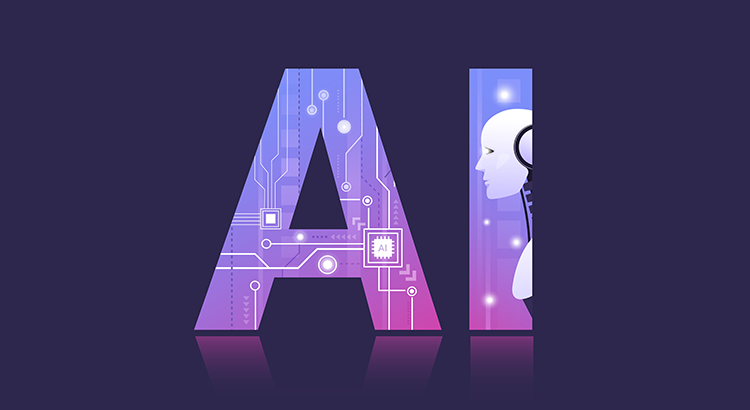AI in digital marketing has transformed how brands connect with their audience, offering deeper insights and automation. The top digital marketing agencies leverage advanced algorithms and machine learning to optimize campaigns and improve customer interactions. By analyzing vast amounts of data, intelligent tools help businesses create more personalized experiences. These innovations enhance engagement, making it easier to deliver relevant content at the right time.
Importance of AI in Digital Marketing
With evolving consumer behavior, brands need smarter approaches to attract and retain customers. Intelligent automation plays a crucial role in optimizing marketing efforts. Here’s why integrating AI-driven solutions is essential:
1. Personalized Customer Experiences
Modern technology enables businesses to tailor content, recommendations, and interactions based on user behavior. By analyzing browsing habits and preferences, companies can deliver highly relevant messages, improving customer satisfaction. This level of personalization strengthens brand loyalty and increases the likelihood of conversions.
2. Predictive Analytics for Better Decision-Making
Analyzing past behavior helps businesses anticipate future trends. Data-driven insights allow marketers to refine their strategies, optimize ad placements, and improve product recommendations. With accurate forecasting, companies allocate resources effectively, reducing guesswork and improving campaign performance across multiple platforms.
3. Automated Campaign Management
Marketing automation simplifies tasks such as email scheduling, social media posting, and audience segmentation. These intelligent systems ensure timely execution while minimizing manual effort. As a result, businesses maintain consistent outreach, optimize engagement, and focus on strategic growth rather than routine operations.
4. Enhanced Customer Support with Virtual Assistants
Conversational tools improve user interactions by handling queries efficiently. These assistants provide instant responses, guide potential buyers through decision-making, and offer support beyond business hours. This improves customer experience, reduces wait times, and lowers operational costs by reducing the need for human intervention.
5. Smarter Content Optimization
Content creation tools analyze search trends, user intent, and engagement metrics to refine articles, ads, and social media posts. This ensures messaging aligns with audience interests, improving visibility. Businesses can produce relevant, high-quality content while reducing the time spent on manual adjustments.
6. Efficient Ad Targeting and Bidding
Automated bidding systems optimize ad placements by analyzing real-time data. These solutions determine the best audience segments, increasing return on investment. With improved targeting, businesses reduce ad spend waste and ensure their promotions reach the most interested consumers at the right moment.
7. Sentiment Analysis for Brand Reputation
Understanding public perception helps businesses refine their messaging. Advanced analytics scan reviews, social media discussions, and online mentions to gauge audience sentiment. This enables brands to respond proactively to feedback, improve customer relationships, and strengthen their market position.
Different Ways to Use AI in Digital Marketing
Companies use intelligent systems to refine their outreach strategies and enhance engagement. Below are some key applications:
1. Automated Content Creation for Better Engagement
Generating quality content consistently can be challenging. AI-powered writing tools analyze trends and user preferences to craft blog posts, social media updates, and ad copies. These systems ensure content aligns with audience interests, allowing businesses to maintain engagement while reducing the time spent on manual content creation.
2. Smart Ad Targeting with Programmatic Advertising
Optimizing ad placements manually is time-consuming. AI-driven programmatic advertising analyzes user behavior, demographics, and past interactions to deliver personalized ads in real time. This improves relevance, reduces wasted ad spend, and increases conversion rates by ensuring promotions reach the right audience at the right moment.
3. Conversational Assistants for Customer Support
Chatbots and virtual assistants enhance customer service by providing instant responses to queries. These AI-driven tools handle common questions, guide users through purchasing processes, and improve response times. By offering 24/7 support, businesses can enhance user experience and reduce reliance on human agents.
4. Visual Recognition for Marketing Insights
AI-powered image and video recognition tools analyze user-generated content, brand mentions, and product appearances online. Marketers use this data to understand audience preferences, track brand sentiment, and create more relevant campaigns. These insights help businesses refine their strategies and engage customers through visually-driven marketing.
5. Email Optimization for Higher Engagement
AI enhances email marketing by personalizing subject lines, delivery times, and content based on user behavior. Automated systems analyze engagement patterns to determine the best times to send emails, increasing open and click-through rates while ensuring messages resonate with recipients effectively.
6. Sentiment Analysis for Brand Perception
Understanding public perception is vital for any brand. AI-driven sentiment analysis scans social media, reviews, and online discussions to gauge customer opinions. This helps businesses adjust their messaging, improve reputation management, and respond proactively to both positive and negative feedback.
Summary
Artificial intelligence has reshaped modern marketing strategies, allowing brands to refine their customer engagement efforts. By leveraging machine learning and data-driven insights, businesses can enhance personalization, optimize campaigns, and improve customer interactions. As technology continues to evolve, companies that embrace AI-driven solutions will gain a competitive edge in their industry.


